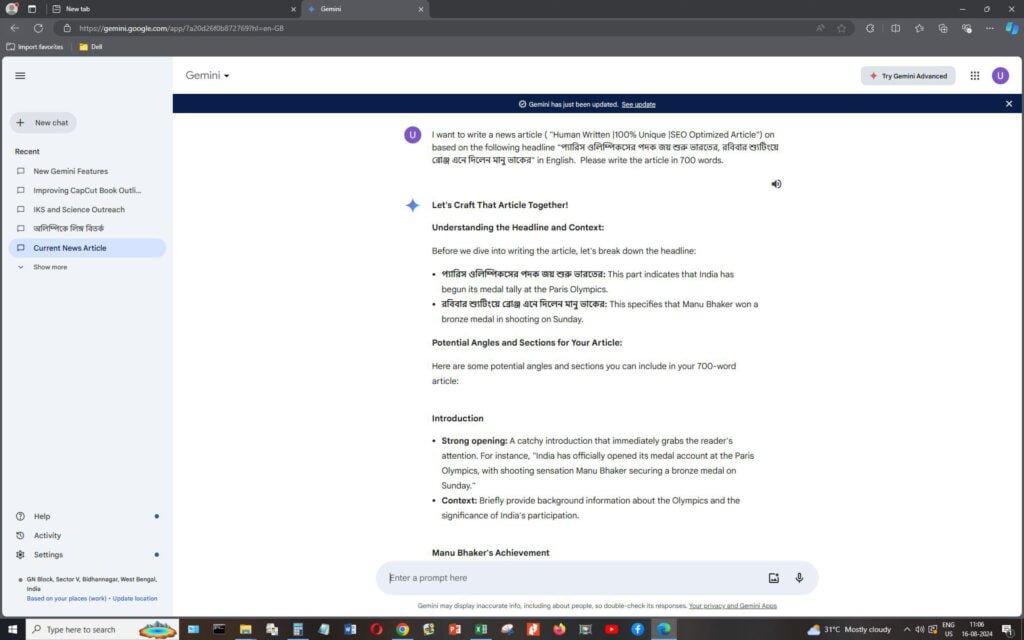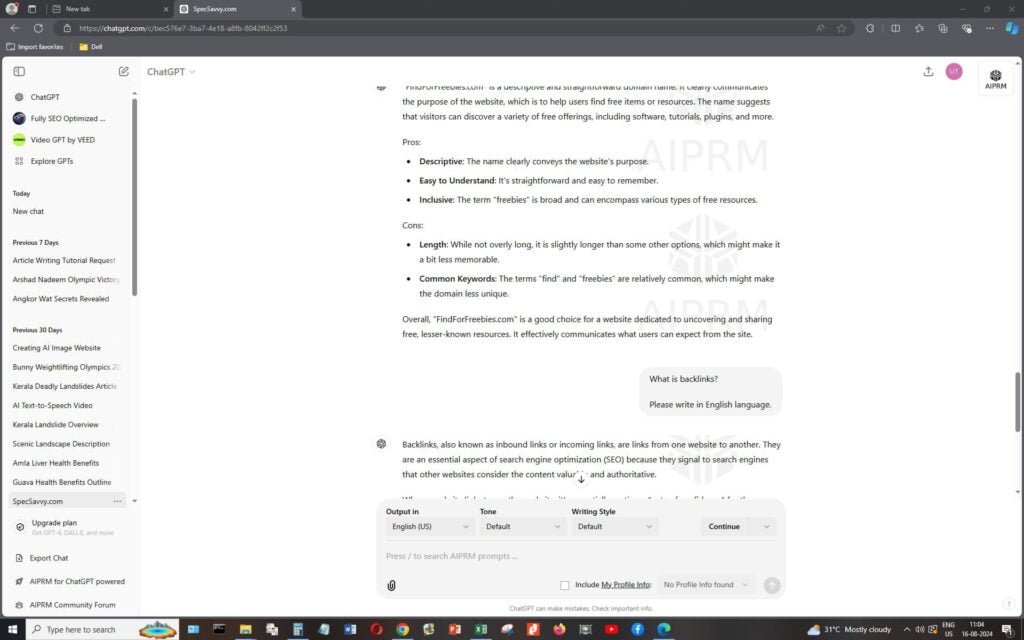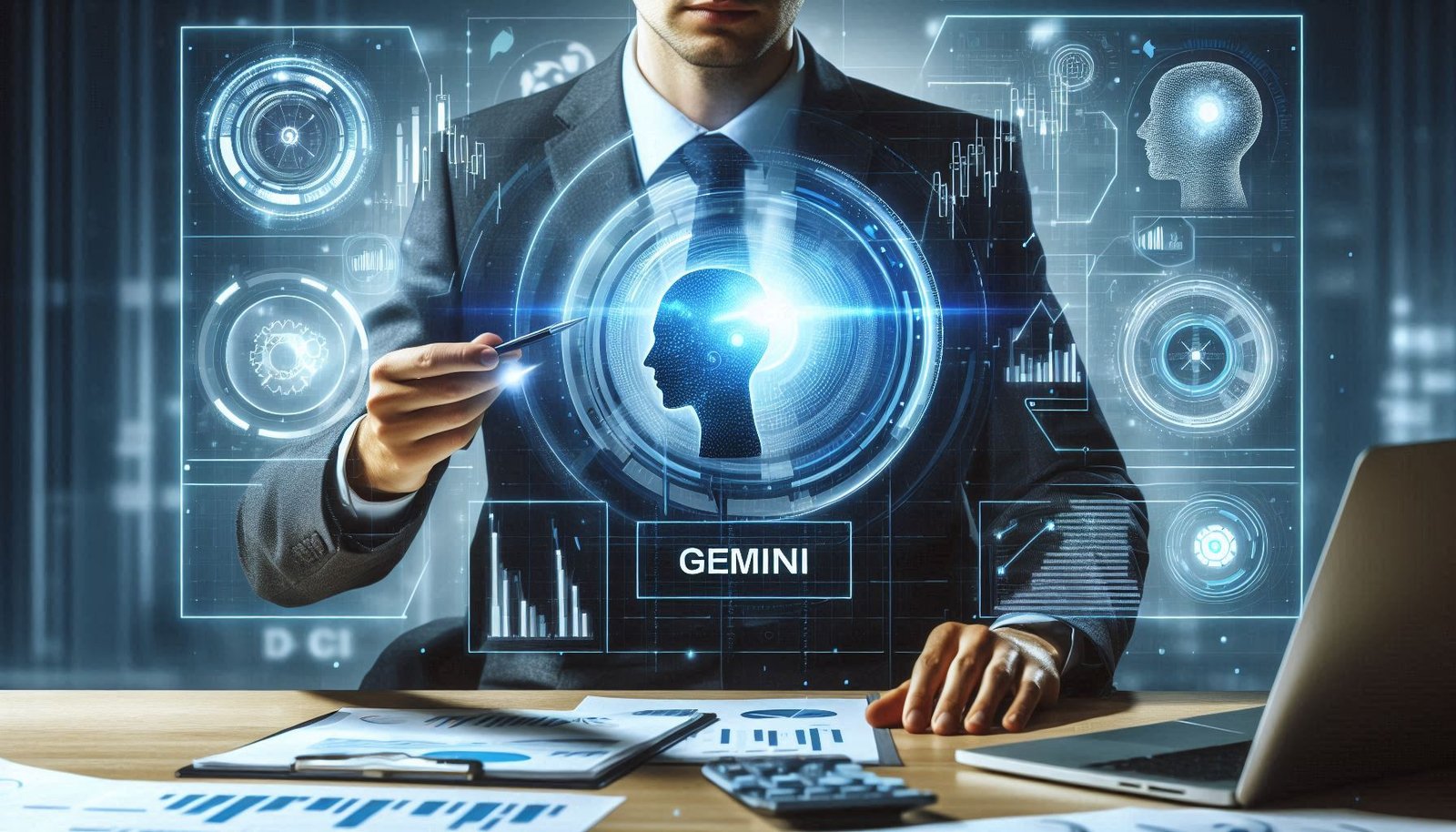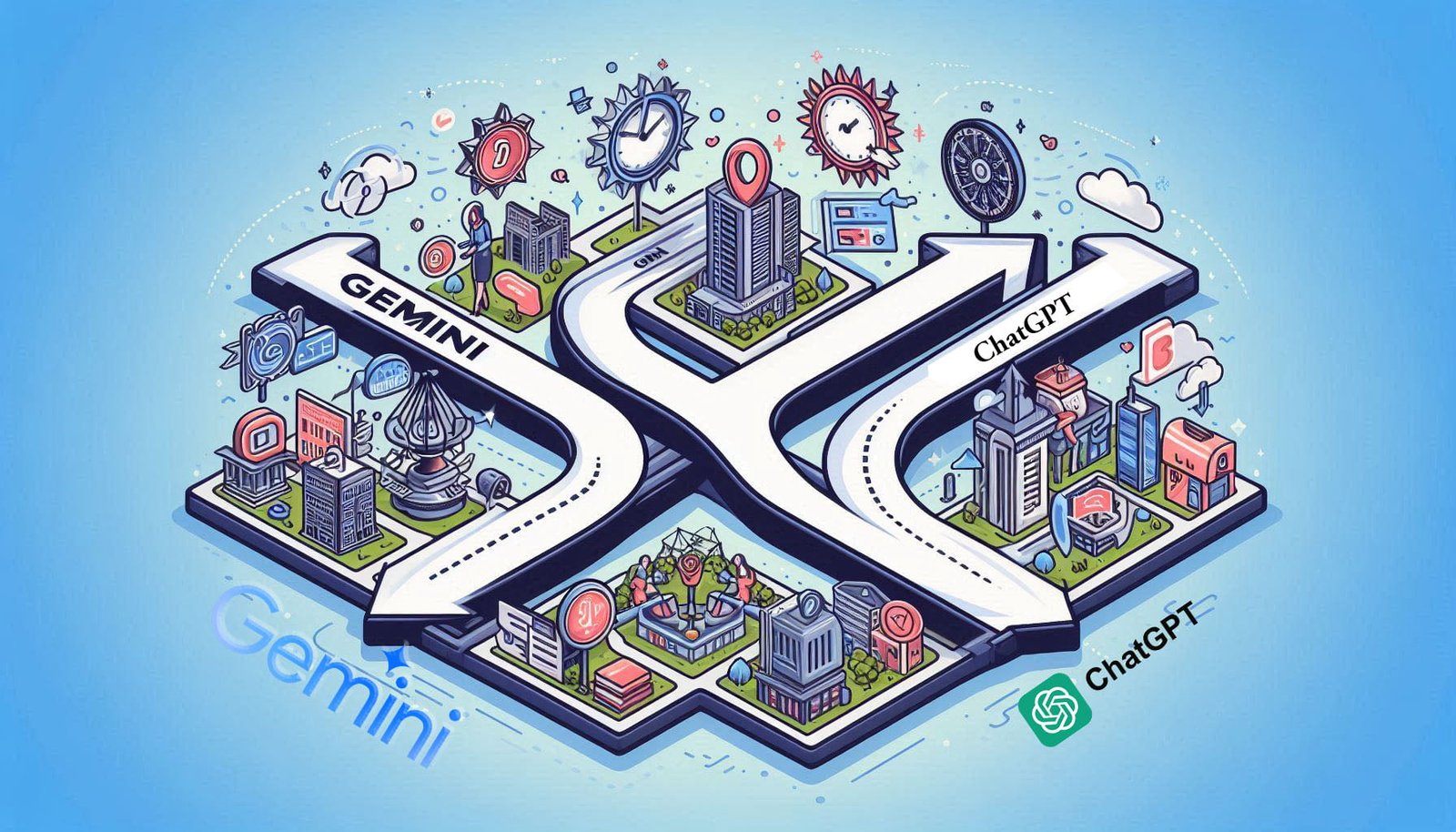
AI-powered language processing has revolutionized how we interact with technology. Two prominent tools in this space are Gemini and ChatGPT, both offering powerful language models for various applications. In this article, we will delve into a detailed comparison between Gemini and ChatGPT, exploring their features, use cases, technical aspects, and more to help you make an informed decision.

Overview of Gemini
Brief History and Development
Gemini is a relatively new AI language model developed with a focus on integrating advanced natural language processing (NLP) techniques. It has been designed to handle complex queries and provide nuanced responses, making it a versatile tool for various industries.
Core Features of Gemini
Gemini boasts features like real-time data processing, multilingual support, and context-aware responses. It is particularly strong in understanding industry-specific jargon, making it ideal for specialized sectors.
Use Cases and Applications
Gemini is widely used in sectors like finance, legal services, and customer support. Its ability to handle complex queries with precision has made it a preferred choice for businesses needing high accuracy in their AI-driven interactions.

Overview of ChatGPT
Background and Development History
ChatGPT, developed by OpenAI, has gained widespread recognition as one of the leading AI language models. It was built on the GPT architecture and has evolved through several iterations, with each version offering more advanced capabilities.
Core Features of ChatGPT
ChatGPT excels in conversational AI, with features like natural dialogue generation, context retention, and adaptability across different tones and styles. It is known for its versatility and ability to engage users in a human-like manner.
Use Cases and Applications
ChatGPT is popular in customer service, content creation, and education. Its wide range of applications includes writing assistance, chatbot functionalities, and interactive learning tools.

Technical Comparisons
Language Models and Architecture
Both Gemini and ChatGPT are built on sophisticated language models, but they differ in architecture. ChatGPT is based on the GPT (Generative Pre-trained Transformer) framework, known for its ability to generate coherent and contextually appropriate text. Gemini, on the other hand, uses a more specialized architecture designed to handle complex queries with higher accuracy in specific industries.
Training Data and Algorithms
ChatGPT was trained on a vast dataset, including diverse internet text, which allows it to handle a wide array of topics. Gemini, however, focuses on industry-specific data, making it particularly strong in fields like finance and law.
Performance and Accuracy
While both models are highly accurate, Gemini’s specialization gives it an edge in certain sectors, whereas ChatGPT’s broader training allows for more general-purpose use.
Customizability and Flexibility
ChatGPT offers more flexibility in terms of tone and style, while Gemini provides customization options tailored to industry needs.

User Experience
Ease of Use and Accessibility
Both tools are designed with user-friendly interfaces, but ChatGPT’s widespread adoption has led to more intuitive designs and ease of use for the general public. Gemini, while powerful, may require a bit more learning for those unfamiliar with its specialized features.
User Interface Design
ChatGPT’s interface is streamlined for everyday use, with features that make it easy to start conversations. Gemini, by contrast, incorporates industry-specific tools, which might make the interface more complex but highly effective for professional use.
Learning Curve for New Users
New users may find ChatGPT easier to pick up due to its more general focus and broader user base, whereas Gemini might require training or onboarding for users in specialized fields.

Applications in Different Sectors
Education and Research
ChatGPT is extensively used in education for creating learning modules and answering student queries. Gemini, while also applicable, tends to be more useful in research environments where precise data handling is critical.
Business and Marketing
Both tools are utilized in business and marketing, with ChatGPT excelling in content generation and Gemini providing data-driven insights.
Healthcare and Medical Applications
Gemini is preferred in healthcare for its accuracy in processing medical language, while ChatGPT is more often used for patient engagement and educational content.
Entertainment and Media
ChatGPT is popular in entertainment for scriptwriting and interactive media, whereas Gemini’s role is more supportive, often providing analytical insights.

Pricing and Accessibility
Cost Structure for Each
ChatGPT offers a freemium model, allowing users to access basic features for free while offering premium features at a cost. Gemini typically follows a subscription model, particularly for enterprise solutions.
Free vs. Paid Versions
ChatGPT’s free version is accessible to a wide audience, making it popular among casual users. Gemini’s paid model reflects its specialized features, catering to professional needs.
Accessibility Across Regions and Devices
ChatGPT is widely available across regions and devices, while Gemini might have restrictions based on industry and region due to its specialized nature.

Security and Privacy Considerations
Data Privacy Measures
Gemini places a strong emphasis on data privacy, with industry-specific compliance features. ChatGPT also prioritizes user data privacy but may not offer the same level of customization in this regard.
User Control Over Data
Both platforms allow users to control their data, though Gemini’s enterprise focus provides more granular control options.
Compliance with Regulations
Gemini is designed with compliance in mind, especially for sectors with stringent regulatory requirements like finance and healthcare. ChatGPT also adheres to privacy regulations, but with a more general approach.
Integration and Compatibility
Integration with Other Tools and Platforms
Both Gemini and ChatGPT offer integrations with various platforms, but Gemini’s focus on professional environments often includes specialized tools and APIs.
API Availability and Usage
ChatGPT’s API is widely used for various applications, from chatbots to content creation tools. Gemini’s API, while available, is more tailored to industry-specific use cases.
Compatibility with Existing Workflows
Gemini is designed to integrate seamlessly into industry-specific workflows, while ChatGPT is more flexible, fitting into a wide range of use cases.

Community and Support
Community Engagement and Forums
ChatGPT has a large and active community, with forums and user groups that share tips and use cases. Gemini, while having a smaller community, offers more targeted discussions relevant to its user base.
Customer Support Quality
Both platforms offer robust customer support, though Gemini’s support may be more specialized due to its enterprise focus.
Availability of Learning Resources
ChatGPT has extensive learning resources, including tutorials and forums, while Gemini provides in-depth resources for its specific applications.

Future Outlook
Upcoming Features and Updates
Both platforms are continuously evolving, with future updates expected to enhance their capabilities. Gemini is likely to deepen its industry-specific features, while ChatGPT may expand its conversational abilities.
Long-Term Impact on AI and Society
Gemini’s specialization might lead to more targeted AI applications, whereas ChatGPT’s general capabilities could broaden AI’s impact across all sectors.

Pros and Cons Summary
Strengths of Gemini
- High accuracy in specialized sectors
- Advanced data privacy features
- Strong industry-specific integration
Strengths of ChatGPT
- Versatility across multiple domains
- User-friendly interface
- Large community support
Limitations of Both Tools
- Gemini may be complex for general use
- ChatGPT may lack the precision needed in specialized industries
Conclusion
Gemini and ChatGPT each have their strengths and are suited to different use cases. Gemini’s specialized features make it ideal for industry-specific applications, while ChatGPT’s versatility and user-friendly design appeal to a broader audience. Your choice between the two should depend on your specific needs, whether they are general-purpose use or industry-specific precision.
Additional resources
